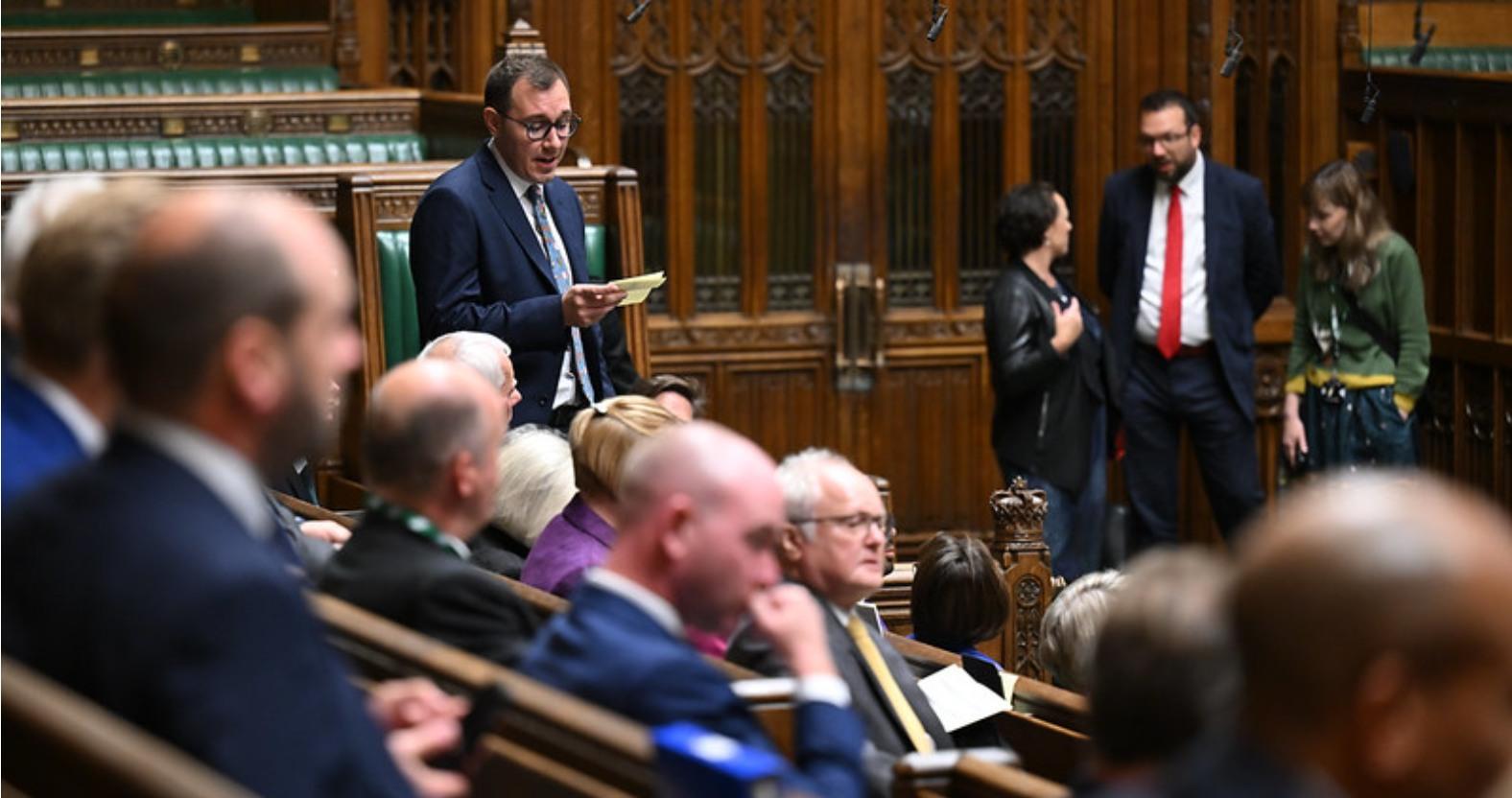Subscribe to trusted local news
In a time of both misinformation and too much information, quality journalism is more crucial than ever. By subscribing, you can help us get the story right.
- Subscription costs less than £1 a week with an annual plan.
Already a subscriber? Log in here.
03
Aug
Interview: What is it like being Harrogate and Knaresborough MP?

“It’s weird and wonderful,” says Tom Gordon as he reflects on 12 months since being elected Harrogate and Knaresborough MP.
Mr Gordon, who is sitting down for an interview with the Stray Ferret, ended 14-years of Conservative rule last July when he won the seat with 23,976 votes.
Since then, the Liberal Democrat has acclimatised himself with the Palace of Westminster and sought to bring issues which affect Harrogate and Knaresborough constituents to the ears of ministers in the House of Commons.
But, the day-to-day business of an MP is not straight forward. “Quite often you don’t know what your day will be like until it happens,” he says.
Entering Westminster
The first few months in Westminster was a baptism of fire for Mr Gordon.
A few days after the election, he went through his induction and was given a laptop and an email account to help with constituency and parliamentary work.

Tom Gordon MP speaking in Parliament.
However, Mr Gordon underestimated just how busy he would be almost immediately.
The first few months after the election, I had not necessarily appreciated the volume of correspondence you would get before you even have a staff team.
You rock up to parliament on a Sunday after the election, you go through your induction, you’re given a laptop and the email account has already been activated. So you spend the first few months trying to clear the backlog [of emails].
The correspondence is wide-ranging, from people who knew Mr Gordon's prior to his election as MP to constituents who have a local issues which they wish to raise with government.
There was also the logistics of balancing constituency work with parliamentary work.
Mr Gordon found the initial balancing act a challenge — but feels he is now through that period.
He said:
Splitting the time between London and Westminster and the constituency at the beginning proved logistically challenging, I think that’s a fair point.
But, I think everyone has now settled into the swing of things.
‘It’s down to luck’
Once the induction was over, it was time to get down to the real business in parliament.
Mr Gordon says he set out after the election with plans for what he wanted to achieve as MP.
But, the way that Parliament functions was surprising to him.
Quite often the thing that I’ve found surprising is just how much of what happens in parliament is down to luck.
For instance, departmental questions are drawn from a “glorified raffle”. If you’re not fortunate enough to be drawn as a question, you may be lucky enough to catch the Speaker's eye.
There is also “bobbing” at Prime Minister’s Questions to try and ask a question of Sir Keir Starmer and get your issue heard in the House of Commons — though Mr Gordon has not yet had the opportunity to do this.

Tom Gordon, MP for Harrogate and Knaresborough.
In essence, Mr Gordon says much of what he wants to achieve as an MP is down to whether he gets a rub of the green on any particular day.
He said:
Luck plays a real big part in the ability for you to be able to do what you want and that necessitates having to think about constructive or different ways of going about it.
Whether it be collaring people in the tea room, writing letters, doing written questions or tabling early day motions.
Since becoming MP, Mr Gordon has spoken in the house 112 times on a range of matters including roadworks causing “gridlock” in Harrogate, bus passes for disabled people and shoplifting in Harrogate town centre.
He has also joined Armed Force Parliamentary Scheme, which involves spending a day a week with the army, and joining the assisted dying bill committee.
But a lot of an MP's work is relationships — including with ministers.
Mr Gordon said his relationship with the Labour government is a “mixed bag” which varies by department.
There are some departments that are genuinely constructive and really open and receptive to working with people cross-party to get stuff done.
For the most part, Mr Gordon says the relationship between ministers and MPs from across different parties is collegiate.
He points to the “ding-dong” atmosphere of Prime Minister’s Questions, which is often full of political sparring, as a bad example which perhaps gives the public the wrong impression of how politicians operate.
What I’ve found quite surprising is most of the time when people see politicians and MPs, it’s usually the ding-dong of PMQs or other similar volatile debates.
But, actually, I would say 90% of the time if not more it’s quite collegiate and a lot nicer than people think. It’s a lot more collaborative.
From entering parliament just days after standing on a podium in Harrogate Convention Centre to “getting his steps up” around the Palace of Westminster, Mr Gordon has had a steep learning curve over the last 12 months.
Despite that, he has sought to raise issues when he can such as cuts to Harrogate College funding and the saga over Harrogate Spring Water money.
Alongside all this, he has to play the political game in both Westminster and his constituency — such as clashing with the local Conservatives over Harrogate hospital RAAC funding.
With all this in mind, does he find his job difficult?
To me, with anything in life, if it isn’t tough and you don’t have to work hard for it then when you get the win it does not feel as rewarding.
0